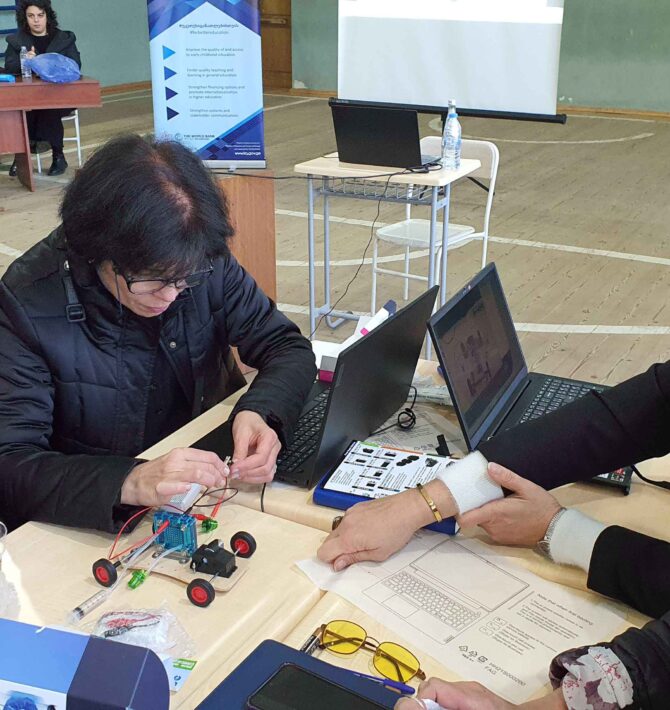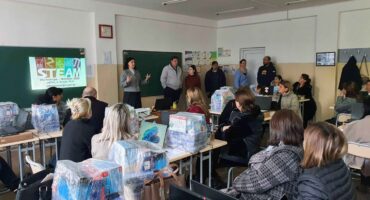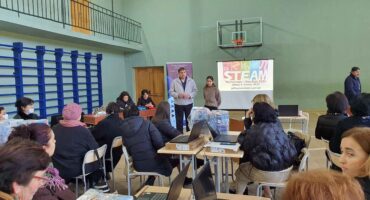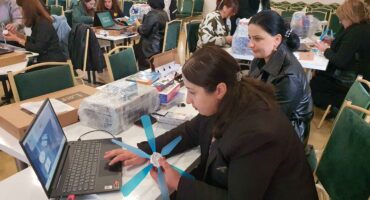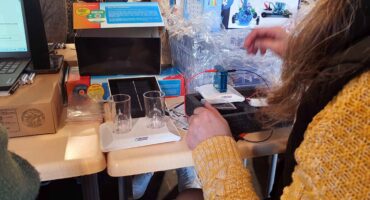Teachers Trained to Implement the STEAM Extracurricular Program
Within the framework of the I2Q project, with the support of the World Bank, the STEAM extracurricular program is being implemented in 200 schools in Georgia. The program is already successfully operating in 80 schools selected for the pilot, and students are actively involved in developing STEAM projects. The remaining 120 schools are ready to pilot the STEAM extracurricular program – the program will be completely implemented by the end of this year, and students will be actively involved. To ensure the program’s success, over 240 science teachers have undergone training. The process was led by Jeffrey Novak, an international expert from the consulting company IBF Expertise SA.
Jeffrey Novak conducted training workshops in schools in various regions of Georgia. The international expert explained in detail how to utilize green energy devices, Arduino technology, and more. During these workshops, teachers had the opportunity to work throughout the day with STEAM educational kits purchased for schools as part of the I2Q project with the support of the World Bank. These kits come with detailed video instructions that outline their operation. At the workshops, the teachers built a wind turbine, powered a robotic car with electrolysis, and explored innovative teaching methods.
Additionally, Mr. Novak introduced the GEM electronic communication portal, designed specifically for the 200 pilot schools. This portal facilitates the implementation of the STEAM extracurricular program and contains essential resources and instructions. It is accessible to all teachers involved in the program.
Teachers expressed that the knowledge and skills acquired during the workshops would enhance their teaching methodologies and enable them to implement the STEAM program successfully in their schools. They will guide students in creating STEAM projects for the upcoming large-scale STEAM conference – “Georgia of the Future,” planned for next fall. The training participants noted that they will now be able to incorporate STEAM resources more easily into science lessons, which they believe will boost student interest in science subjects.
All schools participating in the STEAM program pilot will receive ongoing support from international expert over the next year.







